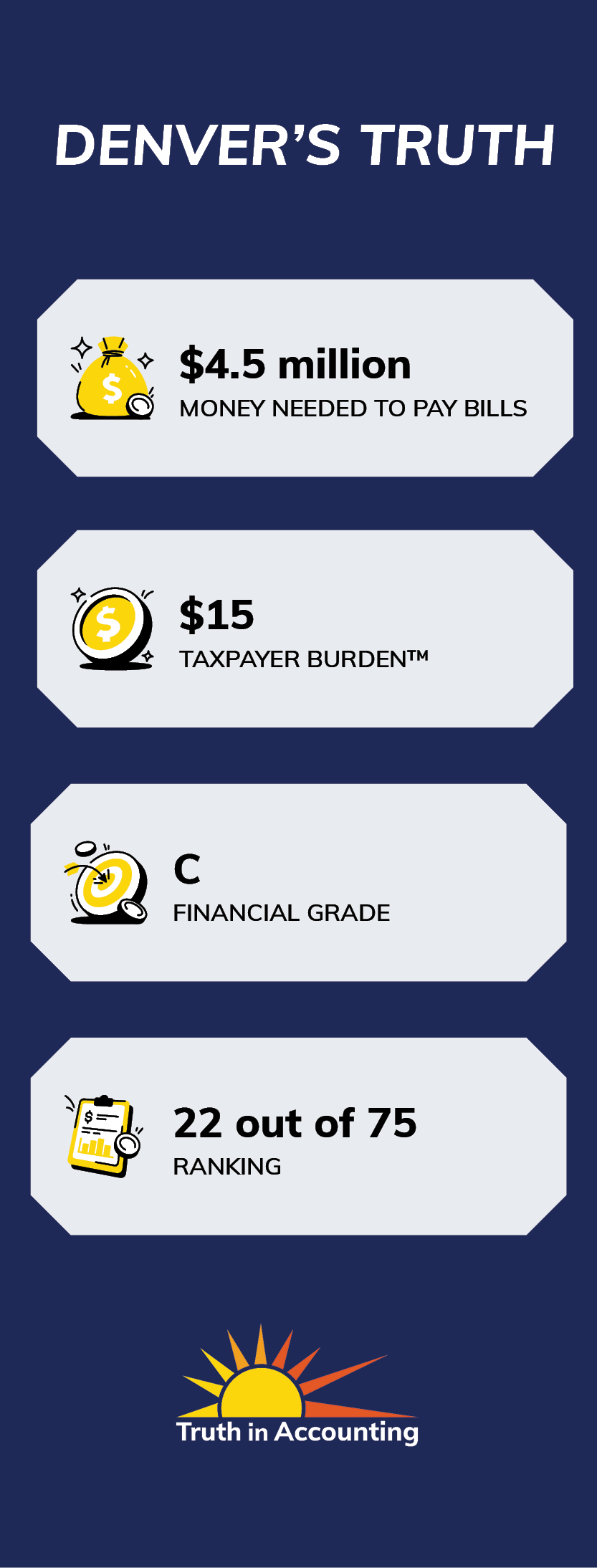Denver, CO
,
|
TIA Data 2023 Financial State of Denver (Released 02/27/2024) Use Create Your Own City Chart to see additional financial, demographic and economic data for this and other cities
Prior Years' TIA Data2022 Financial State of Denver 2021 Financial State of Denver 2020 Financial State of Denver 2019 Financial State of Denver 2018 Financial State of Denver 2017 Financial State of Denver 2016 Financial State of Denver 2015 Financial State of Denver
Other ResourcesDenver Annual Comprehensive Financial Reports Publishing Entity: Department of Finance |


